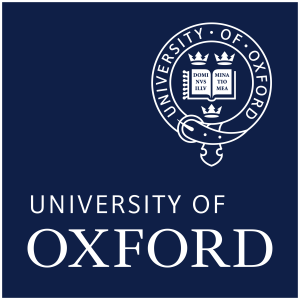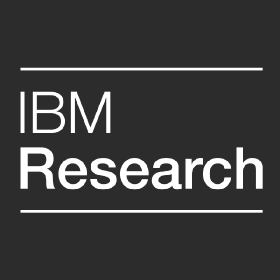Hello! My name is Sílvia and I come from Barcelona. I am currently a 1st year PhD student in Computer Science at Stanford University, supported by a Knight-Hennessy scholarship.
Before that, I was a Global Rhodes Scholar at the University of Oxford, pursuing a Masters by Research in Computer Science under the invaluable supervision of Varun Kanade. In 2023 I graduated summa cum laude from Harvard with a joint A.B. degree in Mathematics and Computer Science, a secondary in Philosophy, and a concurrent S.M. in Computer Science. During the summer of 2024, I was privileged to intern with Moritz Hardt at the Social Foundations of Computation group at the Max Planck Institute for Intelligent Systems.
I am interested in using theoretical computer science to study algorithms in societal contexts and ensure their responsible deployment, particularly from the lenses of complexity theory and learning theory. For my undergraduate thesis, I was extremely fortunate to work with Salil Vadhan and Cynthia Dwork on complexity-theoretic implications of multicalibration. You can read my thesis here (awarded the Captain Jonathan Fay Prize given to the three best theses of Harvard College’s graduating class) and its coverage by Quanta Magazine here (The Question of What’s Fair Illuminates the Question of What’s Hard, June 2024).
Email: scasac [at] stanford.edu. Google scholar.
Research
My research interests revolve around some of these topics:
Multigroup fairness and the Regularity Lemma. Recent work on multigroup fairness has shed new light into classical problems in theoretical computer science through the complexity-theoretic Regularity Lemma, such as Impagliazzo’s Hardcore Lemma and (weak) agnostic learning. I am interested in the interplay between hardness amplification, boosting, multigroup fairness, and the power of calibration.
- How Global Calibration Strengthens Multiaccuracy (FOCS’25). arXiv.
- Complexity-Theoretic Implications of Multicalibration (STOC’24). arXiv, thesis version, video at the Simons Institute, video at STOC, coverage by Quanta Magazine.
See also: Salil Vadhan’s talk at TCC’24 and at MIT’s Cryptography & Security Day.
Uncertainty in predictions. I am interested in formal learning-theoretic models for building predictors that abstain optimally and fairly, in conformal prediction, and in the model multiplicity problem.
- Selective Omniprediction & Fair Abstention (NeurIPS’25, spotlight).
- Reconciling Predictive Multiplicity in Practice (FAccT’25). arXiv.
Data privacy. I am broadly interested in differential privacy and cryptography.
- Widespread Underestimation of Sensitivity in Differentially Private Libraries and How to Fix It (CCS’22). arXiv. See also: OpenDP (open source tools for DP) and Connor Wagaman’s talk at TPDP’22.
- SoK: Oblivious Pseudorandom Functions (EuroS&P’22, distinguished paper award finalist). ePrint.
Here are some non-technical explanations of my research in Catalan (longer talk), in Spanish, and in English.
Past research affiliations
 Max Planck Institute for Intelligent Systems: July – October 2024. Supervisor: Prof. Moritz Hardt.
Max Planck Institute for Intelligent Systems: July – October 2024. Supervisor: Prof. Moritz Hardt.
 Oxford Computer Science department: October 2023 – August 2025. Supervisor: Prof. Varun Kanade.
Oxford Computer Science department: October 2023 – August 2025. Supervisor: Prof. Varun Kanade.
 Harvard Computer Science department: June 2022 – May 2023. Supervisors: Prof. Cynthia Dwork & Prof. Salil Vadhan.
Harvard Computer Science department: June 2022 – May 2023. Supervisors: Prof. Cynthia Dwork & Prof. Salil Vadhan.
 OpenDP (https://opendp.org/): June 2021 – May 2022. Supervisor: Prof. Salil Vadhan.
OpenDP (https://opendp.org/): June 2021 – May 2022. Supervisor: Prof. Salil Vadhan.
 IBM Research Zurich: January – May 2021. Supervisor: Dr. Julia Hesse.
IBM Research Zurich: January – May 2021. Supervisor: Dr. Julia Hesse.
(I spent the 2020-2021 academic year in Zurich due to the Covid pandemic.)
 ETH Zurich Computer Science department: June – December 2020. Supervisor: Prof. Rasmus Kyng.
ETH Zurich Computer Science department: June – December 2020. Supervisor: Prof. Rasmus Kyng.
 Harvard Radcliffe Institute: September 2019 – May 2020. Supervisor: Prof. Damián Blasi.
Harvard Radcliffe Institute: September 2019 – May 2020. Supervisor: Prof. Damián Blasi.
 Imperial College Mathematics department: June – August 2019. Supervisor: Prof. Seth Flaxman.
Imperial College Mathematics department: June – August 2019. Supervisor: Prof. Seth Flaxman.
 Max Planck Institute for Quantum Optics: July 2018. Supervisor: Prof. Jordi Tura.
Max Planck Institute for Quantum Optics: July 2018. Supervisor: Prof. Jordi Tura.
 MIT Mathematics department: June – August 2017. Supervisor: Dr. Oscar Mickelin.
MIT Mathematics department: June – August 2017. Supervisor: Dr. Oscar Mickelin.
With many thanks to all of my mentors for teaching me how to do research and for their generosity.